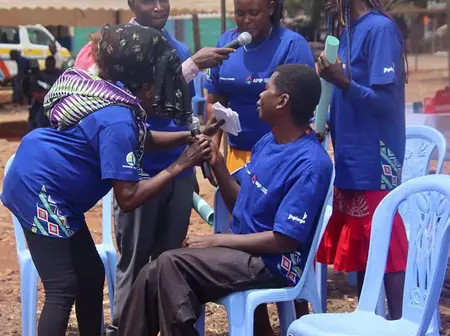Kenya today marked World Contraception Day 2025, a global campaign that emphasizes the power of contraceptives in preventing unintended pregnancies, reducing maternal deaths, and giving women and youth greater control over their futures.
The event, held in Makueni County, drew health experts, government officials, and local communities with a unified call for stronger action on family planning.
Marie Stopes Kenya (MSK), the country’s largest reproductive health service provider, reiterated its commitment to expanding contraceptive access. With over 40 years of service, MSK has built a nationwide network of clinics, outreach programs, and partnerships that reach thousands annually. “This day is a reminder that every woman and every family deserves the power to decide freely about their future,” said Dr. Walter Obita, Country Director, Marie Stopes Kenya. “At Marie Stopes Kenya, we remain committed to ensuring contraceptive choices are available, accessible, and affordable for all,”
According to the Kenya Demographic and Health Survey (KDHS 2022), contraceptive prevalence among married women stands at 57%, with 18% reporting unmet needs for family planning. Experts warn that without investment in youth-focused programs, Kenya risks a rise in unintended pregnancies, which already contribute to over 30% of maternal deaths nationwide.
Kenya’s Constitution (Article 43) guarantees the right to the highest attainable standard of health, including reproductive health care. In addition, the National Reproductive Health Policy 2022–2032 outlines government efforts to strengthen family planning programs, promote youth-friendly services, and ensure county-level implementation.
Despite these commitments, gaps remain in funding and policy enforcement. Advocates say that budget allocations must be increased, and collaboration between government, private providers like MSK, and grassroots groups strengthened to achieve universal reproductive health access.
As Kenya reflects on World Contraception Day 2025, the message is clear: contraceptive access is not just a health issue but a question of rights, dignity, and empowerment. Stronger collaboration, investment, and public education will be key in ensuring that every Kenyan has the freedom to choose and the power to plan their future.

Leave a Reply